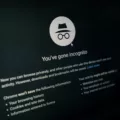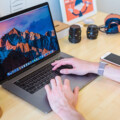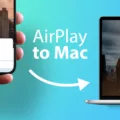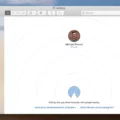Safari is a web browser developed by Apple Inc. and used as the default browser on all Apple devices. Safari is an incredibly popular browser due to its streamlined design, fast performance, and range of integrated features. One of thse features is the ability to block pop-ups, which can be an incredibly helpful tool for avoiding annoying ads or malicious websites.
Unfortunately, some legitimate websites may have pop-ups that you would like to see but are beng blocked by Safari. If this happens, you may need to adjust your settings in order to unblock pop-ups on Safari. Here’s how:
First, open the Safari browser and navigate to the top menu bar. From here, select “Preferences” and then click on the “Security” tab. You will now see a section labeled “Block Pop-up Windows” with a checkbox next to it. Uncheck this box in order to allw pop-up windows from any website.
If you would like more control over which sites can display pop-up windows, scroll down further and select “Manage Website Settings” from the section labeled “Website Settings List”. You will now be able to select individual sites from a list in order to allow or block pop-ups from them specifically. For example, if you want to unblock pop-ups on a particular website but not others, you can do so easily by selecting that website and adjusting its permissions accordingly
It should also be noted that there are some third party plug-ins available for Safari that give users more control over their pop-up settings than what is provided natively in the browser itself. These plug-ins should only be installed with caution as they are developed by third parties and could potentially contain malicious code or other security risks.
By following these steps, you should now be able to easily unblock pop-ups on Safari so that those annoying ads don’t get in your way anymore!

Safari’s Blocking of Pop-ups
Pop-ups are blocked on Safari to help protect you from malicious websites and intrusive advertisements. Safari uses the same security settings for all websites, so if a pop-up appears to be from a legitimate website, the browser might still block it. Safari also blocks pop-ups from automatically opening up when you visit a website, whch can help protect you from malicious ads and pop-up scams. Additionally, Safari can detect when a website is trying to open multiple pop-ups in order to overwhelm your browser and prevent you from closing them. When this happens, Safari will block all subsequent pop-ups in order to keep your browsing experience safe.
Allowing Pop-ups for a Specific Website in Safari
In order to allw pop-ups for a specific website in Safari, you will need to adjust your Pop-up Blocker Settings:
1. In the Safari menu, go to Preferences.
2. In the preferences menu select the Websites tab.
3. Click on Pop-up Blocker in the Tools menu.
4. Choose Pop-up Blocker Settings.
5. Add the site address – *lesley.edu works for all Lesley sites – and press the Add button.
6. Press the Close button to save your changes and enable pop-ups for that website in Safari.
Unblocking Pop-Ups
In order to unblock pop-ups, you need to open your web browser (for example, Chrome) and go to the settings. In the settings menu, look for the “Permissions” option. On this page, you will find an option for “Pop-ups and Redirects” – make sure this is set to “Allow” in order to unblock pop-ups. Once you have made this change, close and re-open your web browser for the changes to take effect.
Turning Off Pop-up Blocker On Safari IPhone
To turn off the pop-up blocker on Safari for iPhone, open the Settings app and scroll down to select Safari. Under General, toggle off Block Pop-ups so the switch turns gray. This will allow websites to show pop-ups wile using Safari on your iPhone.
Unblocking Pop-ups on iPhone Safari
If you want to unblock pop-ups on iPhone Safari, here’s what you need to do:
1. Open Settings and scroll down to the Safari tab.
2. Scroll down under the General section until you find Block Pop-ups.
3. Tap the Block Pop-ups toggle to turn off the pop-up blocker on Safari.
4. Once the toggle turns grey, you will be able to view any pop-up notifications that were previously blocked.
5. To verify that your changes have been applied, open a website or app and check for any pop-up notifications or ads that may appear.
That’s all thre is to it! Now you should be able to view any previously blocked pop-ups on your iPhone Safari browser without interruption.

Source: apps.apple.com
Allowing Pop-ups for a Specific Site in a Browser
To allw pop-ups for this site from your browser, follow these steps:
1. Click the ellipsis icon (…) in the upper right corner of your web browser, and then click Settings.
2. In the Advanced settings section, click View advanced settings.
3. In the Block pop-ups section, click the switch to Off.
4. Now, go back to your web browser and visit the website that you want to allow pop-ups from.
5. Go to its website settings or preferences and make sure that pop-ups are enabled for this site.
6. Once you have done this, all future pop-ups from this website should be allowed in your browser.
Adding a Website to the Exception List for Pop-up Blocker Safari
To add a website to your exceptions list for pop-up blocker in Safari, follow thee steps:
1. Launch Safari and click the “Safari” menu at the top of your screen.
2. Select “Preferences” from the dropdown menu.
3. Go to the “Websites” tab and select “Pop-up Windows” from the left-hand side menu.
4. Change the dropdown menu in the bottom right corner to “Allow”.
5. To add a website to the exception list, click on the plus sign (+) at the bottom left corner of the window and enter a URL or search term that you want to allow pop-ups from. Once you have entered it, click “Add” and then close out of Preferences by clicking on its red circle in the top left corner of that window.
6. Your website will now be added to your exception list for Pop-ups in Safari and any pop-ups from that website will not be blocked by Safari’s Pop-up Blocker feature anymore!
Why Are Pop-up Windows Blocked?
Pop-up windows are blocked for several reasons. Firstly, they are often used to display advertisements which can be intrusive and annoying. Additionally, pop-ups can contain malicious software such as spyware, malware, or viruses that can have a negative impact on your computer’s performance. Finally, some pop-up windows may contain phishing scams attempting to gain access to personal information such as passwords or credit card numbers. By using a pop-up blocker, you are protecting your computer from tese potential dangers.
Unblocking Pop-ups on an iPad
To unblock pop-ups on an iPad, start the Settings app, then select Safari from the pane on the left. In the General section, turn off “Block Pop-ups” by swiping the switch to the left. This will allw pop-ups to be displayed when browsing with Safari on your iPad.
Conclusion
Safari is Apple’s web browser that is included with macOS, iOS and iPadOS. It is a powerful and versatile browser that provides users with a fast, secure, and efficient web browsing experience. With its advanced privacy features, it enables users to browse the web safely and securely. Furthermore, Safari offers many customization options, such as extensions and themes, to make browsing more enjoyable. Additionally, its integration with iCloud Keychain allows users to store website passwords for easy access. Overall, Safari is an excellent choice for tose who want a reliable and secure browsing experience on their Mac or iOS device.








